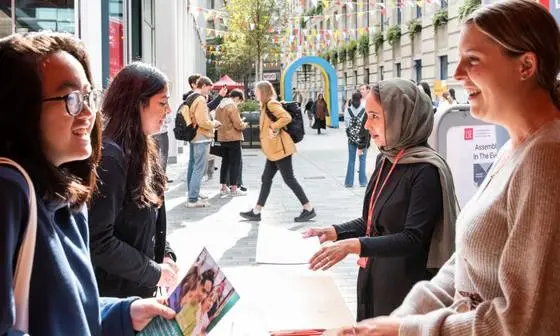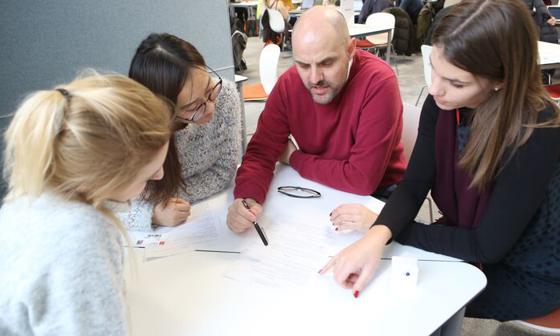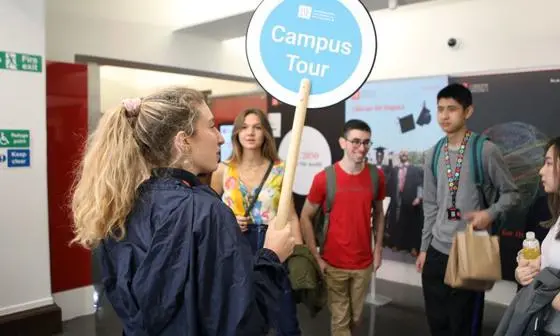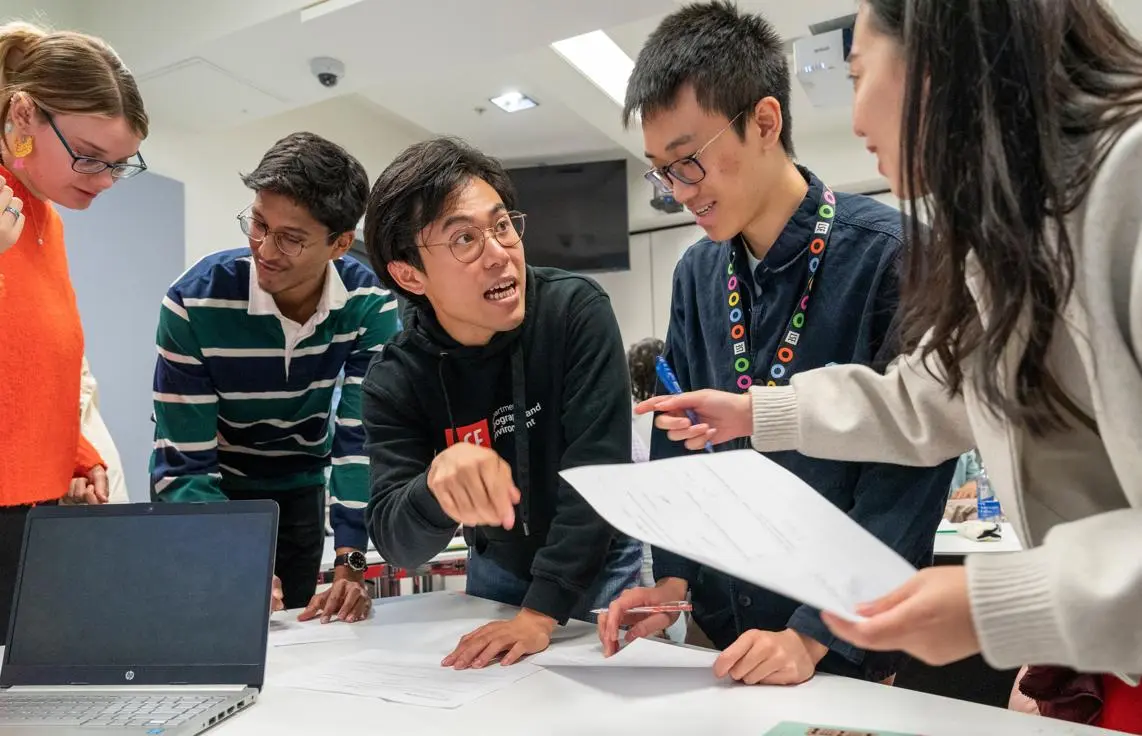Overview
Introduction
Technological change, shifting patterns of global trade, and geopolitical tensions are leading to rapid changes in the world economy. Yet these global changes are felt very differently in local, urban and regional economies across the advanced, emerging, and developing world.
In this context, economic development increasingly requires new responses, and demands specialist skills to exploit the opportunities these changes offer.
The MSc Local Economic Development, affiliated by the Institute for Economic Development (IED), prepares you to meet these challenges.
What you’ll learn
Based on the latest academic evidence and theory, you’ll develop an understanding of:
- How global economic change is influencing local economies
- How the private and public sector can work together to achieve change
- How strategies for development can best be designed and delivered
- The implications of urbanisation, how FDI and global value chains shape economic development
- Strategies for inclusive growth
Academic excellence
Our programme is academically rigorous and taught by one of the world’s leading research groups on sub-national economic development. The faculty includes five members listed among the top 2% of cited researchers globally, and multiple award winners, including the European Regional Science Association (ERSA) prize and the Royal Geographical Society’s Gold Medal.
Practical focus
We emphasise policy and practice through interactive lectures, classes, and seminars that engage students in current public policy debates. Our faculty have collaborated with prominent organisations such as the World Bank, OECD, European Commission, AIIB, IADB, national governments, and various private sector organisations and consultancies.
Preliminary readings
- A Pike, A Rodriguez-Pose and Tomaney Local and Regional Development (Routledge, 2016)
- M Storper Keys to the City: How Economics, Institutions, Social Interaction, and Politics Shape Development (Princeton, 2013)
Entry requirements
Upper second-class honours degree (2:1) or equivalent in social science (in the past mostly economics, development, sociology, geography, international relations and political science).
No requirement for GRE/GMAT, but a good GRE/GMAT score is a strong asset.
Please select your country from the dropdown list below to find out the entry requirements that apply to you.
Overseas
English language requirements
The English language requirement for this programme is Standard. Read more about our English language requirements.
Competition for places at LSE is strong. So, even if you meet the minimum entry requirements, this does not guarantee you an offer of a place.
However, please don’t feel deterred from applying – we want to hear from all suitably qualified students. Think carefully about how you can put together the strongest possible application to help you stand out from other students.
Programme content
Year 1
You'll choose courses to the value of two units from a range of half-unit geography options. You'll choose additional options to the value of one unit from a range of relevant options within geography and in other departments. You'll also complete a dissertation where you'll undertake independent research on an approved topic of your choice.
Courses to the value of one unit from a range of options
Why study with us
Discover more about our department below and explore our student testimonials on our website.
Meet the department
Our department is highly regarded both nationally and internationally – ranked second for Geography in the QS World University Rankings 2025.
Here at LSE, we offer a unique opportunity to study geography in a university with a worldwide reputation in the social sciences. We specialise in economic, urban and development geography, environmental social science and climate change, all with a strong emphasis on real-world applications.
Many of our academics are internationally renowned in their fields. You’ll find a good balance of experienced and younger academics in the department. Within the team, we’ve had three holders of the highly prestigious Philip Leverhulme Prize Fellowships for researchers under the age of 36.
Our research is interdisciplinary and international in its scope and we work closely with academics from several other departments at LSE. Teaching staff are active within the following research centres:
- Cañada Blanch Centre for Contemporary Spanish Studies
- Centre for Climate Change Economics and Policy
- Centre for Economic Performance
- Grantham Research Institute on Climate Change and the Environment
- LSE London
- Middle East Centre
- Saw Swee Hock Southeast Asia Centre
- Transition Pathway Initiative Centre
- What Works Centre for Local Economic Growth
Based in the heart of London opposite Lincoln’s Inn Fields, the department offers a lively, welcoming and supportive community for students and staff.
Learn more about our undergraduate, postgraduate
and PhD study opportunities,
as well as our research.
Why LSE
University of the Year 2025 and 1st in the UK
Times and The Sunday Times - Good University Guide 20251st in London for the 14th year running
The Complete University Guide - University League Tables 20266th In the world
QS World University Rankings by Subject 2025
Carbon Neutral In 2021, LSE became the first Carbon Neutral verified university in the UK
Your application
Overview
We welcome applications from all suitably qualified prospective students. At LSE, we want to recruit students with the best academic merit, potential and motivation, irrespective of background.
We carefully consider each application and take into account all the information included on your application form, such as your:
- academic achievement (including predicted and achieved grades)
- statement of academic purpose
- two academic references
- CV.
See further information on supporting documents.
You may need to provide evidence of your English language proficiency. See our English language requirements.
This programme is available as part of an ESRC-funded pathway onto a PhD programme. The 1+3 scheme provides funding for a one year research training master's linked to a PhD programme and is designed for students who haven't already completed an ESRC recognised programme of research training. An application must be submitted for the relevant master’s programme, including a research proposal for the PhD aspect of the pathway. Applicants must also indicate their wish to be considered for the 1+3 pathway within their personal statement.
Who attends
The programme is designed for:
- Recent graduates in disciplines like economics, geography, political science, business, or public policy, seeking specialised skills in sub-national economic development.
- Experienced professionals in economic development institutions aiming to deepen their expertise.
- Aspiring researchers, with alumni having progressed to leading universities worldwide.
When to apply
Applications for this programme are considered on a rolling basis. This means that applications will close once the programme is full.
There is no fixed deadline. However, if you’d like to be considered for any funding opportunities, you must submit your application (and all supporting documents) by the funding deadline. See the fees and funding section below for more details.
Fees and funding
The table of fees shows the latest tuition fees for all programmes.
You're charged a fee for your programme. At LSE, your tuition fee covers registration and examination fees payable to the School, lectures, classes and individual supervision, lectures given at other colleges under intercollegiate arrangements and, under current arrangements, membership of the Students' Union. It doesn't cover living costs or travel or fieldwork.
Home
Home student fee (2025/26)
For this programme, the tuition fee is different for home and overseas students depending on their fee status.
Overseas
Overseas student fee (2025/26)
For this programme, the tuition fee is different for home and overseas students depending on their fee status.
Learning and assessment
How you learn
How you're assessed
All taught courses are required to include formative coursework which is unassessed. It's designed to help prepare you for summative assessment which counts towards the course mark and to the degree award. LSE uses a range of formative assessment, such as essays, problem sets, case studies, reports, quizzes, mock exams and many others. Summative assessment takes the form of essays, debates, examinations and coursework. An indication of the formative coursework and summative assessment for each course can be found in the relevant course guide.
Graduate destinations
Overview
Previous graduates are working in international organisations (eg, the UN system [including ILO, UNDP, FAO], World Bank, OECD, European Union, World Trade Conference), national and regional governments, international consultancy, non-governmental organisations (NGOs), research centres and leading universities.
Further information on graduate destinations for this programme
Median salary of our graduate taught students 15 months after graduating:
Top 5 sectors our students work in:
Career support
From CV workshops through to careers fairs, LSE offers lots of information and support to help you make that all-important step from education into work.
Many of the UK’s top employers give careers presentations at the School during the year and there are numerous workshops covering topics such as job hunting, managing interviews, writing a cover letter and using LinkedIn.
See LSE Careers for further details.
Find out more
Explore LSE
Student life

Student support

Accommodation

Meet, visit and discover LSE

